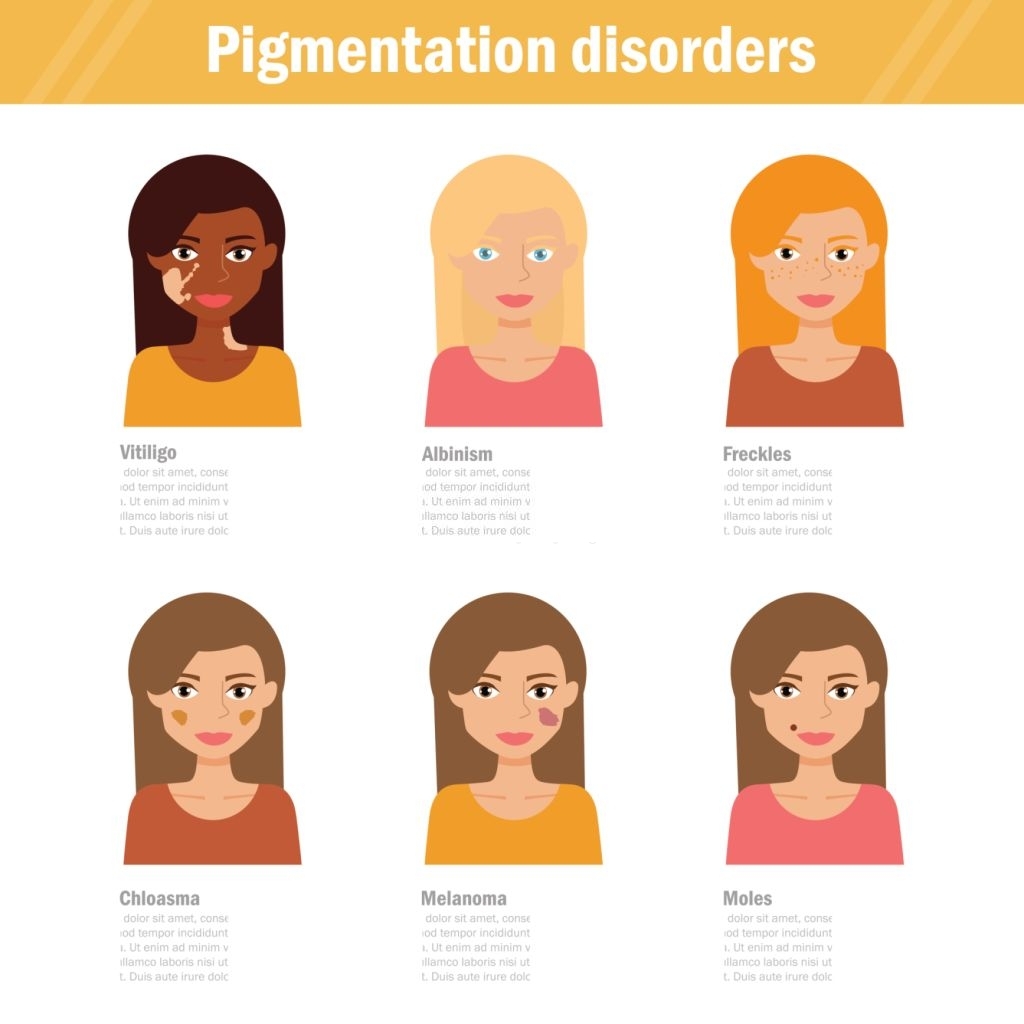Your skin is susceptible to damages from many factors. While some of these factors are external or environmental like dust, sunlight, pollution, etc, others are internal or biological like genetics, hormonal fluctuations, etc. Certain medical conditions or medications can also trigger skin problems. Pigmentation is a wide-spread skin problem that is associated with skin color. It refers to the dark-colored spots and patches on your skin. It is often related to extreme sun or UV exposure, aging, and other factors. Here is an explanation of what the problem is and common mistaken believes prevailing about it.
What is pigmentation?
Melanin is a dark-colored pigment produced by your skin that gives your skin the color it has. When the production of melanin is increased, it causes pigmentation issues (hyperpigmentation). You can notice spots or patches on your skin, which are darker than as compared to the nearby skin. Based on the underlying reason that causes these spots, these are classified into three broad categories.
- Age spots/liver spots
These are black, brown, or tan spots which appear as your skin takes on the sun or UV exposure for a prolonged duration. These are also linked to aging as they occur mostly in older people.
- Melasma
Melasma is also called the chloasma or mask of pregnancy. These appear in the form of large dark skin patches. These appear mostly on the forehead, stomach, and face in pregnant women or those taking birth control pills.
- Post-inflammatory pigmentation spots
These affect the people who have had injuries or inflammations like acne or eczema. These conditions sometimes leave dark patches after healing.
Myths about pigmentation
Like any other skin condition, pigmentation also causes issues at several levels including psychological concerns. As these dark patches are visible, these feel hesitant to go out and socialize and make desperate attempts to get rid of these spots. This often leads to discussions and seeking help from people who are not experts and origination of misconceptions about the problem. Here we try to break the myths and provide factual information that would help you effectively treat pigmentation.
- Myth: Only my diet is responsible for the spots on my skin.
Spots and patches on the skin are perplexing. Only an expert dermatologist can find what exactly a spot means. People often associate pigmentation with food, which is untrue. Your diet has nothing to do with the formation or treatment of pigmentation spots. These can form due to different reasons and should be treated differently for relieving the condition.
- I cannot do anything about the pigmentation that occurred after pregnancy.
Pigmentation sometimes occurs during or after pregnancy or menopause and specifically refers to melasma. The hormonal fluctuation causes the skin to go darker in some places. It grows gradually and can spread over the face if not treated. A severe condition may need multiple treatments continued for a longer duration. The condition worsens many times as it is mistaken for inflammation and is not treated properly. The point here is it can be treated, especially if it is identified early and correct treatment is initiated at the right time.
- All lasers can take away pigmentation issues and can do wonders for my skin.
All skincare clinics claim to be the best and provide the paramount solution to pigmentation. In the recent world, the claim is associated with the availability of the finest laser technology. However, everyone’s skin is different and so is the problem. The treatment, even if it is done with a laser, needs thorough examination and understanding of the skin type and severity of pigmentation problem. Always choose the clinic operating under experienced and proficient practitioners who can give a personalized solution to your problem.
- Any sunscreen is good and needs to be used only outdoors.
Many people think any sunscreen including low SFP is good for their protection from the sun. It is important to understand what SPF means and how to choose the best sunscreen. SPF measures of protection you get from the cream against the burn you get without any protection. You need to apply sunscreen in the right amount and repetitively to ensure the best protection. Also, sunscreen protects you from UV way and not just sunlight. You need to put it on even indoors for protection from UV rays coming in through windows and windshields.
- Pigmentation is genetic and cannot be prevented from occurring anyway.
If you have a history of pigmentation running in your family, you are also likely to get the problem. However, it can be prevented by staying away from pollution, sun exposure, stress, smoking, and other harmful chemicals. A regular regime can potentially reduce the risk of pigmentation.
Just like you, your skin is unique. For that reason, in addition to keeping the above facts in mind, you should seek professional and expert help for your problem. Dermcos Skin Care Clinic is one of the best skincare clinic in gurgaon with best in class infrastructure and facilities. We have been successfully treating patients for many years. Our team of experienced dermatologists analyzes your skin and level of pigmentation to ensure you get the best possible treatment and excellent outcomes.

